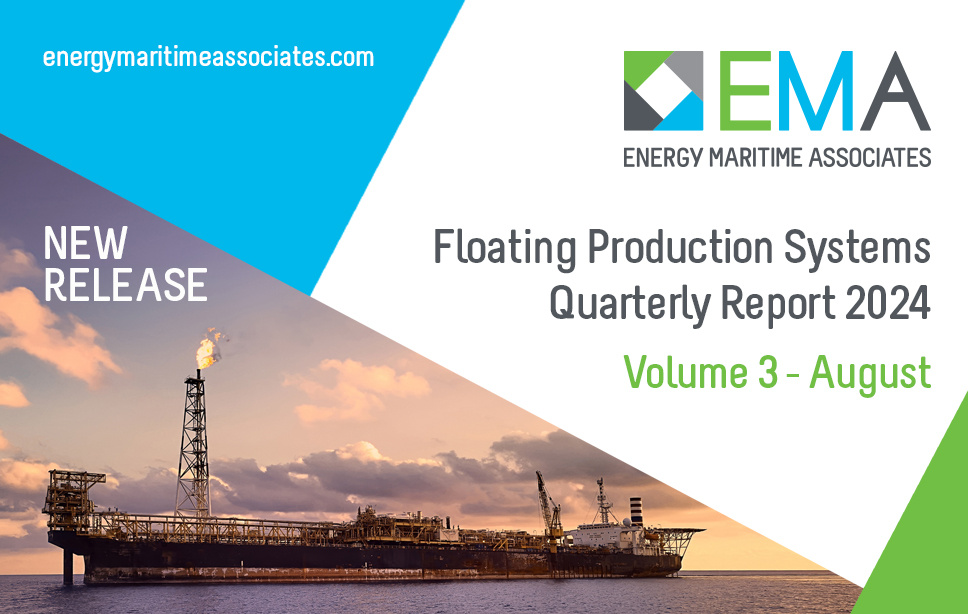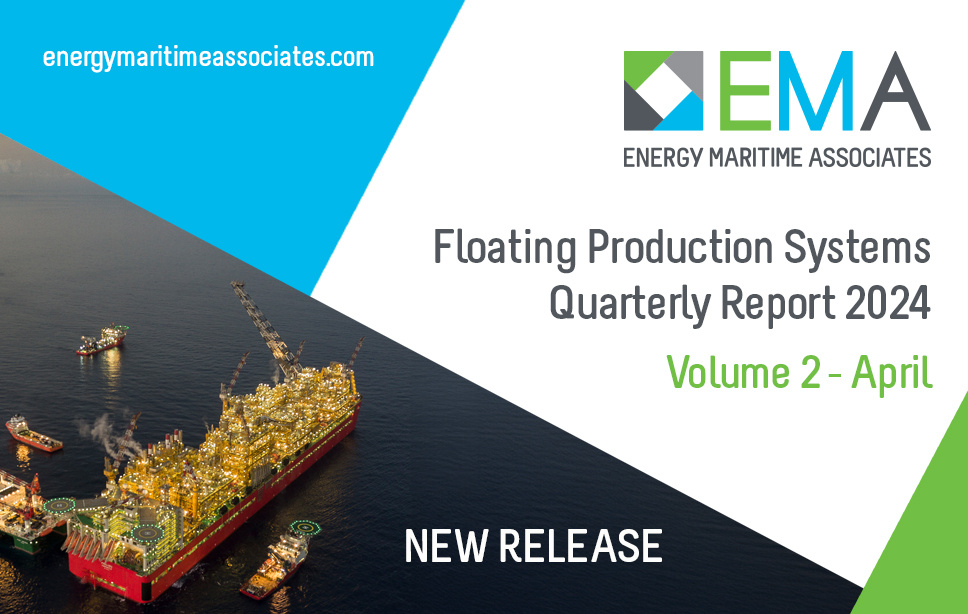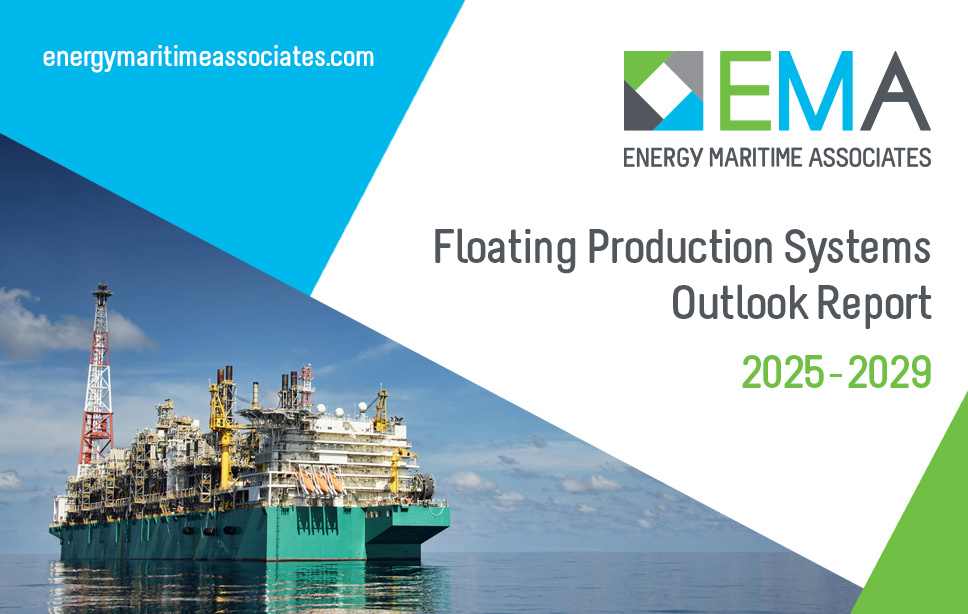
Get all the latest details in the Q3 August issue of the Floating Production Systems Quarterly Report by Energy Maritime Associates (EMA)
- A $8.16 billion EPC award from Petrobras to Seatrium for the P 84 (Atapu 2) & P 85 (Sepia 2) FPSOs. Seatrium was the only bidder after COOEC withdrew its proposal for the P 84 FPSO.
- A $3.7 billion order to Saipem to provide and operate an FPSO as well as the SURF package for Total’s Kaminho project in Angola.
In addition, SBM announced that TotalEnergies had reserved a Fast4Ward hull for the Block 58 development offshore Suriname and will allocate the hull ordered in March 2023 at CMHI (China Merchants Heavy Industry). FID is expected in Q4 2024 with first oil in 2028. The FPSO is expected to have processing capacity of around 200,000 b/d. Following their model of having one available FPSO hull at all times, SBM ordered another unit from CMHI and has two slots available with CSSC-SWS in 2025.
Additional floating production orders are expected in the second half of 2024 and into 2025. Energy Maritime Associates (EMA) has identified 29 projects that are most likely to be awarded within the next 12 months. These include 16 FPSOs, 7 FSOs,
3 FLNGs, 2 Semis, and 1 MOPU. These will be for multiple units in Brazil, new frontier regions such as Namibia and the Falkands, as well as the re-emergence of mature areas like Angola, Indonesia, Ivory Coast, and Malaysia. Over half of these orders would be leases. There could be up to five FPSOs awarded for Brazil. However, awards for leased Petrobras units could be further delayed, due to high prices and lack of competition.
Further details are included in the 260 page Q3 2024 Floating Production Systems Report, which covers:
- 177 Projects in planning pipeline
- 52 Production floaters and 8 storage floaters currently on order
- 23 Units currently available (14 FPSOs, 3 Semis, 2 FSOs, 2 FSRUs, 1 Barge, and 1 SPAR)
- 345 Production floaters and 114 storage floaters currently in service or available
- 414 Production floaters, 190 storage floaters, and 24 MOPUs delivered or redeployed since 1996
According to EMA’s Managing Director, David Boggs "From mid-2023 there was a dearth of large FPSO awards as there was limited capacity and companies adjusted to new pricing realities throughout the offshore sector. As expected, orders resumed in May 2024, with the most expensive FPSOs ever ordered at over $4 billion. Seatrium was the only bidder for these two massive units for Petrobras. This sets a new bar and shows the limited capacity in the market. However, additional competition may be attracted at these price levels. The fundamentals of the floating production sector remain strong with a large number of developments in the planning pipeline. While financing remains a challenge, particularly for leased assets, alternative sources of capital, including bonds and private equity, are available and interested in the long-term, infrastructure nature of floating production contracts.”
Floating Production Systems Q3 Report is Available Now - Click to find out more!
About EMA:
Energy Maritime Associates (EMA), part of the Archer Knight Group, is recognized the foremost independent authority in delivering data and consultancy advice on the floating production market. With a dedication to driving excellence and fostering innovation, EMA empowers stakeholders across the energy sector to make strategic, data-driven decisions.
For further information, please contact:
Yun Xu at yun.xu@energymaritimeassociates.com

1 min read
After Short Term Pause, Large Floating Production Orders Poised to Resume
Get all the latest details in the Q2 issue of the Floating Production Systems Report by Energy Maritime Associates (EMA) The pause in large Floating...

2 min read
$126 Billion Investment in new Floating Production Units
From 2025-2029, Energy Maritime Associates (EMA) expects orders for 119 Floating Production Systems, with a Capital cost of $126 Billion, in its...

Archer Knight enhances Flowline market intelligence platform with EMA data
We’re pleased to share that Archer Knight is featured in the latest Global Underwater Hub News Magazine, highlighting how we’re enhancing our...

